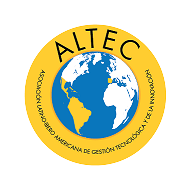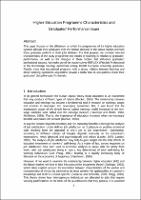| dc.contributor.author | García Aracil, A. | |
| dc.date.accessioned | 2021-05-27T15:55:39Z | |
| dc.date.available | 2021-05-27T15:55:39Z | |
| dc.date.issued | 2013 | |
| dc.identifier.uri | https://hdl.handle.net/20.500.13048/632 | |
| dc.description.abstract | This paper focuses on the efficiency by which the programmes of the higher education systems allocate their graduates over the various domains in the labour market and how these graduates perform in their jobs obtained. For that purpose, we consider selected characteristics of the study programme and modes of teaching in relation to graduates’ performance, as well as the changes in those factors that influence graduates’ professional success. We make use of the macro-survey REFLEX (Flexible Professional in the Knowledge Society) performed among 40,000 European university graduates. Results show that educational programs with a strong relation between learning and direct working experience acquisition provide a better link to occupations inside their graduates’ discipline-specific domain. | |
| dc.language.iso | eng | |
| dc.rights | info:eu-repo/semantics/openAccess | |
| dc.rights | Atribución-NoComercial-SinDerivadas 2.5 Perú | |
| dc.rights.uri | http://creativecommons.org/licenses/by-nc-nd/2.5/pe/ | |
| dc.subject | Educación superior | |
| dc.subject | Problemas de desempeño | |
| dc.subject | Graduados | |
| dc.subject | Universidades | |
| dc.subject | Características académicas | |
| dc.title | Higher Education Programme Characteristics and Graduates’ Performance Issues | |
| dc.type | info:eu-repo/semantics/conferenceObject | |
| dc.relation.conferencedate | 27-31 de octubre, 2013 | |
| dc.relation.conferencename | XV Congreso Latino-Iberoamericano de Gestión Tecnológica | |
| dc.relation.conferenceplace | Porto, Portugal | |
| dc.contributor.corporatename | Consejo Superior de Investigaciones Científicas | |


